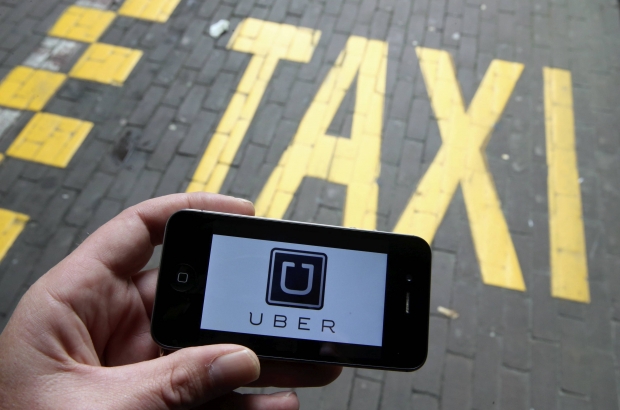- Daily & Weekly newsletters
- Buy & download The Bulletin
- Comment on our articles
Data leak reveals unscrupulous ways Uber tried to undermine competitors in Brussels
A data leak has revealed the unscrupulous and at times potentially illegal ways in which Uber sought to take control of the passenger-transport market in Europe. The questionable practices also occurred in Brussels, where the American-based tech giant has been involved in an ongoing dispute with the existing taxi sector.
The “The UberFiles” leak features over 124,000 internal documents, including memos, calendars, WhatsApp messages and other data files from 2013 to 2017 that were leaked to the British newspaper The Guardian, which shared the data with various media outlets, including De Tijd and Le Soir in Belgium.
The leaked documents indicate that Uber employed private investigators to probe Brussels competitors Taxis Bleus and Taxis Verts. It also made attempts to infiltrate Brussels Mobility, specifically its practice of using “mystery shoppers” who would order Ubers in order to check if their drivers were in compliance with the law.
Uber was also revealed to have sabotaged court-related searches by activating what they called a “Kill Switch”, restricting police officers’ access to sensitive company data they believed could harm growth prospects. Critics had long suspected the company had a fast option to erase compromising data ahead of police searches. The leaked documents confirmed not only that such an ability existed, but also that former chief executive Travis Kalanick had personally activated it at times.
They also indicate that the “Kill Switch” was activated at least once in the Brussels office ahead of a police search.
Company culture now changed, says Uber
Uber does not deny the allegations but insisted that the company’s operating policies and culture have changed since Kalanick was removed as chief executive, replaced by Dara Khosrowshahi in 2017.
“When we say Uber is a different company today, we mean it literally: 90% of current Uber employees joined after Dara became chief executive,” Jill Hazelbaker, senior vice president of marketing and public affairs at Uber, said in a statement.
“We have not and will not make excuses for past behaviour that is clearly not in line with our present values. Instead, we ask the public to judge us by what we’ve done over the last five years and what we will do in the years to come.”
The data leak also shed light on the relationships Uber cultivated with top politicians such as France’s president Emmanuel Macron, who was on a first-name basis with Kalanick during his time as Uber CEO.
Former European Commission vice-president Neelie Kroes was also revealed to have secretly lobbied for Uber in 2015 and 2016, even after the European Commission explicitly prohibited her from taking a position with the company.
Kroes approached cabinet ministers, top officials and Dutch Prime Minister Mark Rutte on behalf of Uber, hoping to influence taxi legislation and a criminal investigation into Uber.
Brussels is currently in the final stages of implementing taxi reforms intended to allow for the existence of ride-hailing apps like Uber, Bolt and Heetch alongside traditional taxi cab companies.
Photo: © Belga/Nicolas Maeterlinck



















